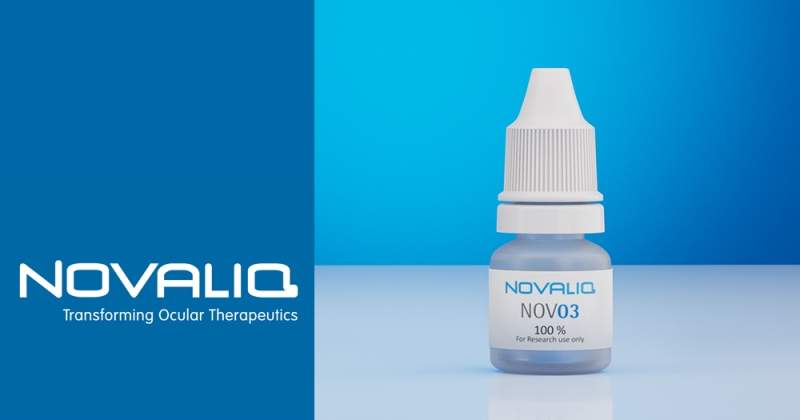
Novaliq has reported positive topline results from the Phase II SEECASE clinical trial to evaluate the effects of NOV03 for the treatment of dry eye disease (DED).
As part of the randomised, multi-centre trial, Novaliq investigated two different dosing regimens of NOV03 to treat the signs and symptoms of DED.

Discover B2B Marketing That Performs
Combine business intelligence and editorial excellence to reach engaged professionals across 36 leading media platforms.
The saline-controlled, double-masked trial recruited 336 patients at ten clinical sites in the US.
It met its primary endpoint of improving total corneal fluorescein staining over control at eight weeks, with improved statistical data for both dosing regimens.
The results also demonstrated an average of up to 50% improvement from baseline while treating the symptoms of DED with NOV03.
Improved safety and tolerability for NOV03 was also reported during the trial, supporting the development of NOV03 as a first treatment for patients with predominantly evaporative DED associated with meibomian gland dysfunction (MGD).

US Tariffs are shifting - will you react or anticipate?
Don’t let policy changes catch you off guard. Stay proactive with real-time data and expert analysis.
By GlobalDataTauber Eye Center practicing ophthalmologist Joseph Tauber said: “The simultaneous demonstration of improvement in symptoms and robust improvement in ocular surface signs stands out as among the most convincing data in a dry eye study that I have seen.
“A treatment that could effectively relieve the symptoms of many patients with DED associated with meibomian gland dysfunction, for which there are currently poor treatment options, would be a very welcome addition to our clinical practice.”
NOV03 (100% perfluorohexyloctane) is a preservative-free ophthalmic solution, developed to treat evaporative DED associated with MGD.
It has the ability to stabilise the lipid layer for several hours to prevent excessive evaporation, the company said.
It also has the potential to penetrate the meibomian glands to improve meibum quality.





